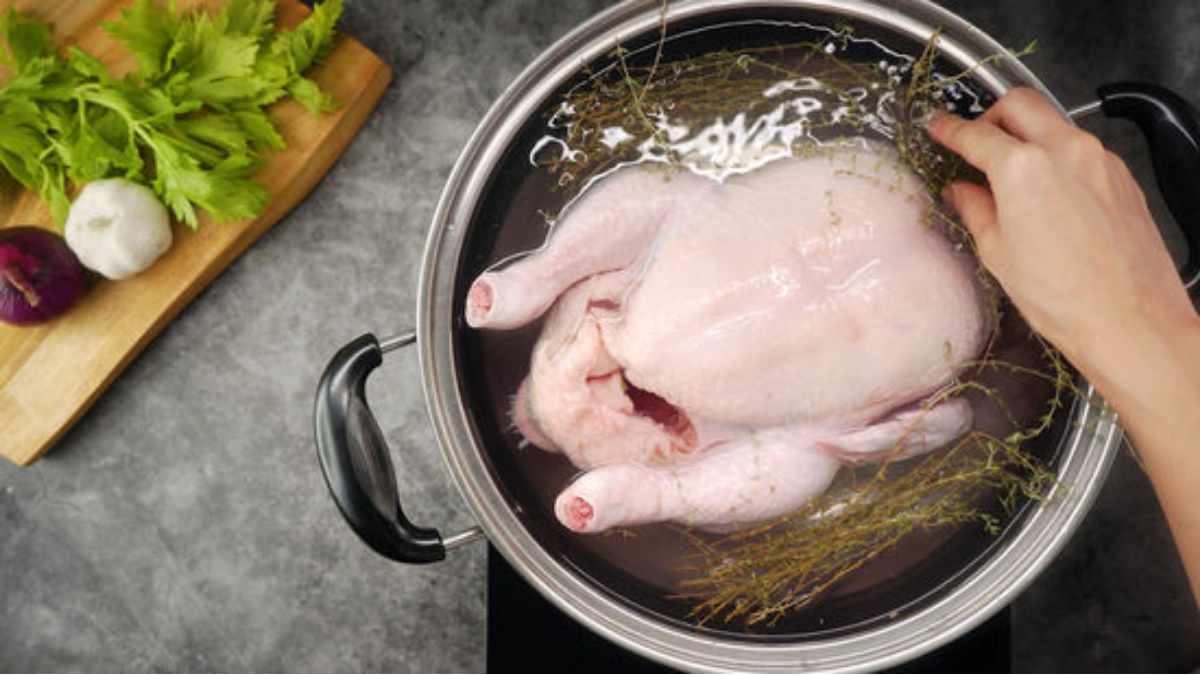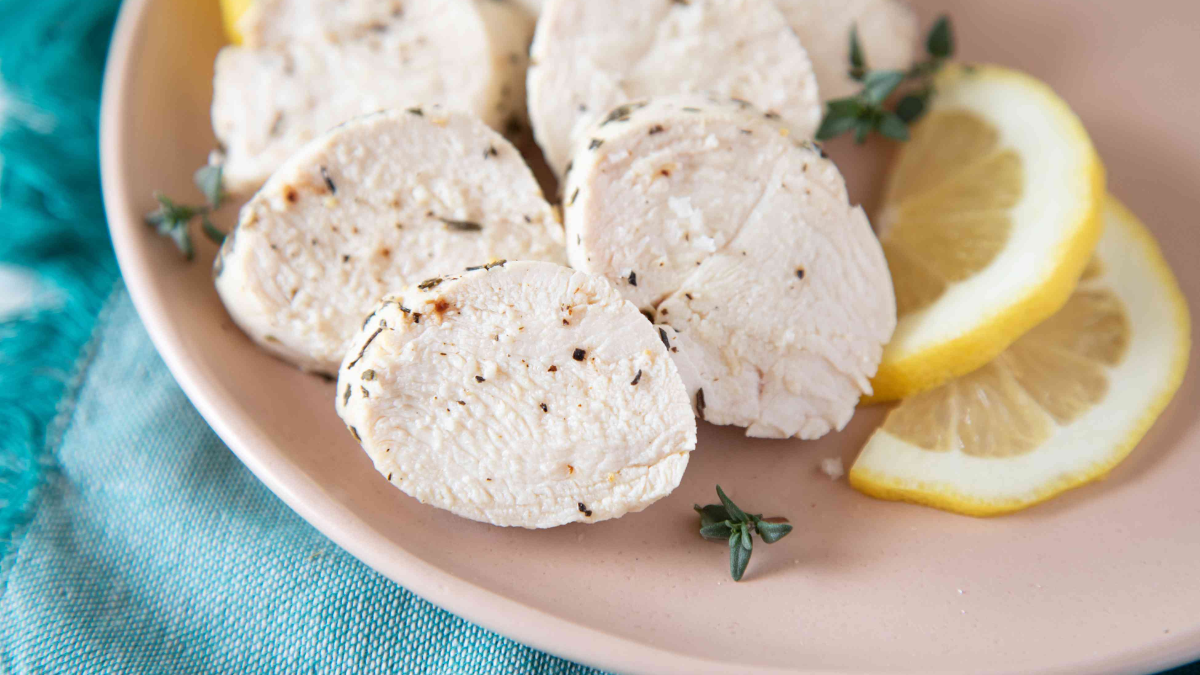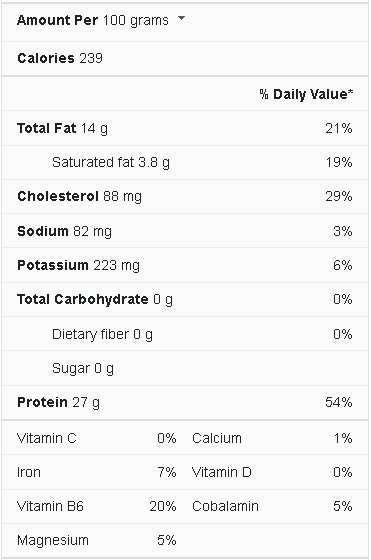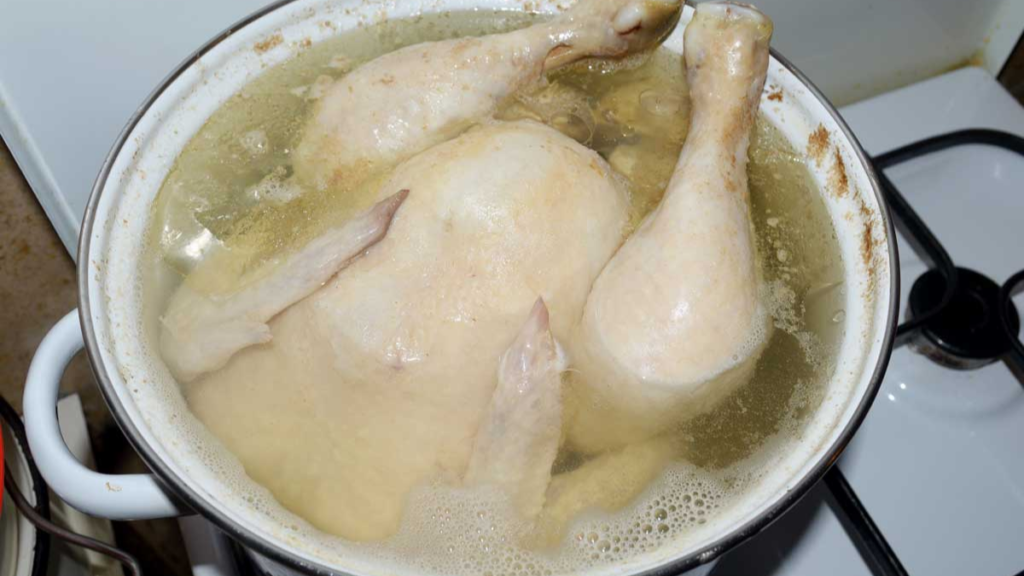Knowing how long chicken takes to boil is an essential question for every cook when it comes to cooking. In most cases, it takes about ten minutes to a dozen hours to get perfectly tender meat. But there are exceptions. Depending on the size of the chicken, the time can vary from twelve to fifteen minutes. After the recommended cooking time, the chicken can be sliced or shredded.
Chicken Nutrition Facts
Points To Remember While Boiling Chicken
It is best to use a large pot to hold the bird when cooking chicken. The water should be approximately three times the weight of the chicken, and this will ensure that the chicken cooks evenly. A smaller chicken may require a longer cooking time, but this will not impact the finished product’s flavor. A whole bone-in breast will usually cook in 25 minutes, and a single 2.3-pound chicken should simmer for up to 50 minutes.
Here are Some Essential Points That Will Help You Know How Long to Boil Chicken:
Pick Your Liquid
Sure, you could cook your chicken in water, but doesn’t that seem dull? To increase the flavor of your chicken, boil it in chicken broth.
Season It
In a large pot with a tight-fitting lid, place the chicken breasts and enough liquid to cover them. Season your liquid with salt and pepper to taste – this is critical.
It’s essentially the same as boiling a pot of spaghetti. You can also add carrots, onions, or fresh herbs to the stew if you have them. The taste will come entirely from what you put in the pot; therefore, the more, the merrier.
Bring It To a Boil
Bring your water to a boil once you’ve added all your flavors. Cover the pot and reduce the heat slightly to maintain a fast simmer. Simmer for around 10 minutes, depending on the size of your chicken breasts.
Remove one piece from the saucepan and inspect after 10 minutes. The interior temperature should be 165 degrees Fahrenheit. If they require additional time, check in every 5 minutes. Don’t overcook them, or they’ll get rubbery.
Shred It Up
Allow your chicken to rest for 10 minutes after removing it from the pot. This will keep them cool enough to shred while still retaining some moisture to prevent them from drying out. To shred or slice your chicken, use two forks. Boiling chicken is a brilliant idea when it comes to preparing chicken.
It will not be fully cooked but brought to a low simmer. Poaching is the term for this method. A large bone-in chicken will take about twenty minutes to cook thoroughly, whereas a bird of this size will take eight to ten minutes. Boiling an entire chicken takes around half an hour on average. Thus, the total cooking time will vary.
How To Store Boiled Chicken?
Boiling chicken can be made and stored in the fridge or freezer for days or months. Allow the chicken to cool completely before transferring it to a storage container. Refrigerate for up to three days or freeze for two months if covered.
Place the broth in a substantial storage container to keep it fresh. Refrigerate for up to two days or freeze for up to two months if covered. You can also use the broth to boost flavor by freezing it in ice cube trays. Use the chicken meat immediately away, cool it, and keep it in the fridge for up to five days.
The cooked chicken can also be frozen for up to three months. Before freezing the chicken, I recommend shredding or slicing it. Also, don’t discard the cooking liquid! This method produces a light-flavored chicken broth that may be substituted for chicken broth in other recipes or used to cook rice and other grains. You can also drink it by itself!
How Healthy Is Boiled Chicken?
Here are a lot of health benefits of boiled chicken:
- Boiled chicken contributes little to your diet, keeping you within the USDA’s suggested fat intake of 20 to 35 percent. A 3-oz. serving has 2.5 g of fat, none of which is saturated.
- Chicken has no fiber or carbohydrates, so it’s a good choice if you’re trying to lose weight on a low-carbohydrate diet.
- The substantial protein content (about 25 g per 3 oz. serving) promotes weight loss by increasing fullness. People who cut calories and ate three larger, high-protein meals per day felt more content and were less likely to eat late at night, according to a March 2011 study published in the journal “Obesity.”
- The protein content of a skinless, cooked chicken breast (172 grams) is 54 grams, equating to 31 grams of protein per 100 grams of body weight.
- Chicken is high in underutilized vitamins and minerals, and it may be the centerpiece of a heart-healthy, low-fat, low-cholesterol diet.
- A sufficient quantity of protein Chicken has a lot of protein, essential for keeping our muscles healthy.
Is There Any Health Loss Of Boiled Chicken?
Here are some downsides also of boiled chicken:
- When simmering a chicken, you’ll notice a foggy “skin” of proteins growing on the pot’s top. They’re typically skimmed off to keep the soup clear, and they do represent a small amount of protein that’s been lost.
- According to the nutrient database of the United States Department of Agriculture, the uncooked meat of a 1-pound chicken provides 51 grams of protein. After stewing or simmering, the same chicken contains 49 grams of protein, a net loss of 2 grams.
- Another disadvantage of boiling chicken is nutritional loss. Many vitamins and minerals are water-soluble; therefore, their concentration can be drastically lowered after cooking.
- B vitamins and minerals like selenium, phosphorus, and potassium are lost more when a chicken is boiled or stewed than when roasted.
- Roasted chickens lose more iron, folate, and vitamin E than boiled chickens. The nutrients lost during the simmering process aren’t always lost permanently, and most of them are just moved to your boiling liquid, and if you eat the broth, you’ll still benefit from them (especially those B vitamins).
Conclusion
Cooking chicken in water until it reaches 140-160 degrees Fahrenheit is the simplest method. A whole chicken should be maintained at this temperature for roughly two hours to avoid overcooking. You can also bake or grill it, but don’t submerge it in water for too long. After that, you can bake or cook it as you choose.



